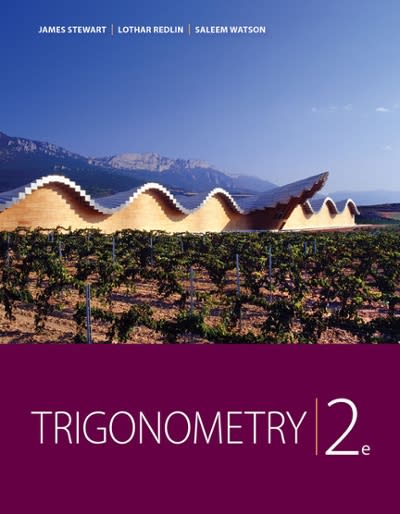Question
A university provides two different drop in maths help centres, staffed by different tutors. They have randomly sampled 30 users of each centre and done
A university provides two different drop in maths help centres, staffed by different tutors. They have randomly sampled 30 users of each centre and done a quick user satisfaction survey. The results are shown in the table below
Satisfied users | Unsatisfied users | |
Drop-in help centre A | 18 | 12 |
>Drop-in help centre B | 11 | 19 |
a) [2 marks]Is this an example of an observational study or an experiment? Explain how you can tell?
b) [2 marks]Which variable is explanatory and which is the response?
c) [3 marks]What is the relative risk of a someone being unsatisfied after visiting centre B compared to centre A? Interpret what this means.
d)[2 marks] What test could you use to determine if there is an association between centre and satisfaction? What should your null hypothesis be?
e) [1 mark] Assuming the null hypothesis is true, how many unsatisfied users would you expect to see that visited centre B?
f) [2 marks] If you get a very small p-value for the test suggested in part d, would it be appropriate to conclude that the staff at centre A are more competent than the staff at centre B? Explain your answer.
g) [2 marks] Some people have proposed that the different locations and opening hours of the two centres might be confounding variables. Explain what is meant by a confounding variable.
h) [2 marks] Explain what key feature of an experimental design helps you to control for confounding variables. Would it be possible to do such an experiment in this scenario?
Step by Step Solution
There are 3 Steps involved in it
Step: 1

Get Instant Access to Expert-Tailored Solutions
See step-by-step solutions with expert insights and AI powered tools for academic success
Step: 2

Step: 3

Ace Your Homework with AI
Get the answers you need in no time with our AI-driven, step-by-step assistance
Get Started


